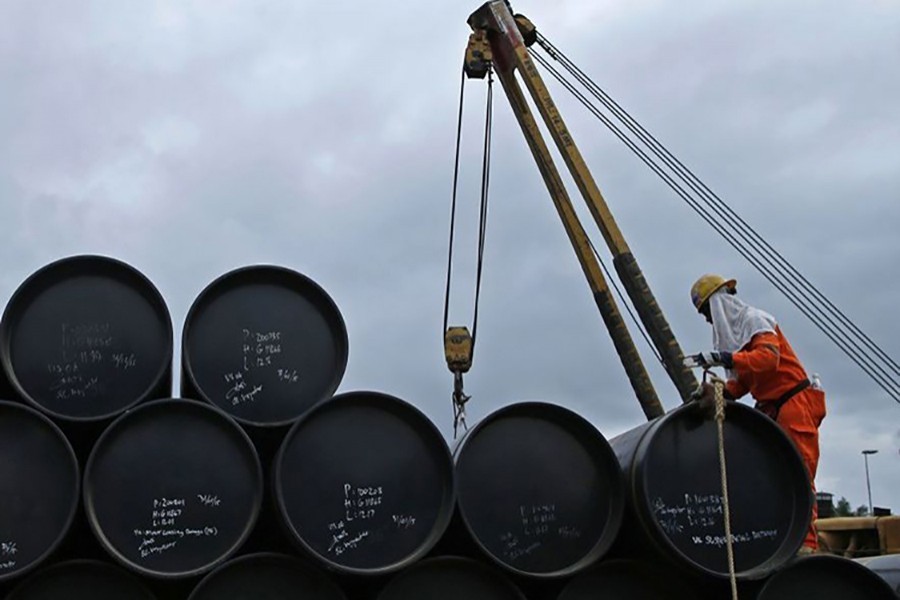BPC seeks govt nod for oil sale at int'l rate
Desperate bid to slash corporation's losses

Published :
Updated :

State-run Bangladesh Petroleum Corporation (BPC) has sought government approval for selling imported oil for power plants at the international rate to slash losses.
The soaring prices of petroleum products in the international market over the past several months have pushed the BPC back into the red zone.
The corporation is currently incurring losses of around Tk 220 million a day, according to a senior official at the state-run oil trading agency.
The loss stands at Tk 9.46 per litre against trading of diesel and Tk 16.88 per litre for furnace oil, considering July 2, 2018 oil price in the international market.
Under the existing regulation, the BPC imports petroleum products at international market rate and sells at the government-fixed rate in the domestic market for all sorts of consumers including those of power plants.
All government and some privately-owned power plants consume BPC's oil to generate electricity.
In fiscal year (FY) 2017-18, the BPC imported around 5.80 million tonnes of diesel and furnace oil combined, of which around 2.0 million tonnes were consumed in power plants.
The BPC, in a recent letter to the Energy and Mineral Resources Division (EMRD) under the Ministry of Power, Energy and Mineral Resources (MPEMR) wished to hike the domestic prices of the petroleum products to cut back on losses.
The corporation sought government subsidies worth Tk 80 billion for FY 2018-19 unless the domestic oil prices are not raised, said the BPC official.
The BPC sought hike, in part, to ensure funds available for executing some of its development projects to be implemented on its own costs.
Officials said the BPC started incurring losses again in oil trading from November 2017, after making substantial profits for the last three consecutive years beginning from late 2014.
The price of brent crude, the benchmark in international oil price, climbed up to $ 79 per barrel in July 2018 from $ 47 in June, 2017 and below $ 30 in early 2016.
Apart from higher international oil price, BPC incurs heavy losses due to paying around 31 per cent import tax and freight charges along with margins for the state-run oil marketing companies and dealers.
Taking the advantage of the slumping oil price in the international market and selling of oil at higher prices domestically, the BPC recorded a profit of Tk 42.12 billion during FY 2014-15, Tk 63.42 billion during FY 2015-16 and Tk 43.99 billion during FY 2016-17, according to BPC statistics.
During FY 2017-18, the BPC reached a breakeven point, attaining profit in earlier months while incurring losses in later months, said the BPC official.
It also provided Tk 22 billion to the government exchequer during FY 2016 and FY 2017 as dividend.
The corporation also paid dues amounting to Tk 30.90 billion to state-owned Sonali Bank, Janata Bank, Agrani Bank and Rupali Bank, Tk 17.58 billion to Petrobangla, and Tk 6.03 billion as pending value added tax (VAT) to National Board of Revenue (NBR) over the past several years from its profit.
The BPC incurred losses every year from FY2001-02 to FY2013-14.
Last year, the BPC undertook a programme to implement a number of projects including the second crude oil refining unit of Eastern Refinery Ltd (ERL).
The corporation is also building the country's first single point mooring (SPM) system, two oil carrying pipelines from Dhaka-Chittagong and Kanchon Bridge-Kurmitola at the total cost of 167.39 billion from its own source.
Azizjst@yahoo.com


 For all latest news, follow The Financial Express Google News channel.
For all latest news, follow The Financial Express Google News channel.